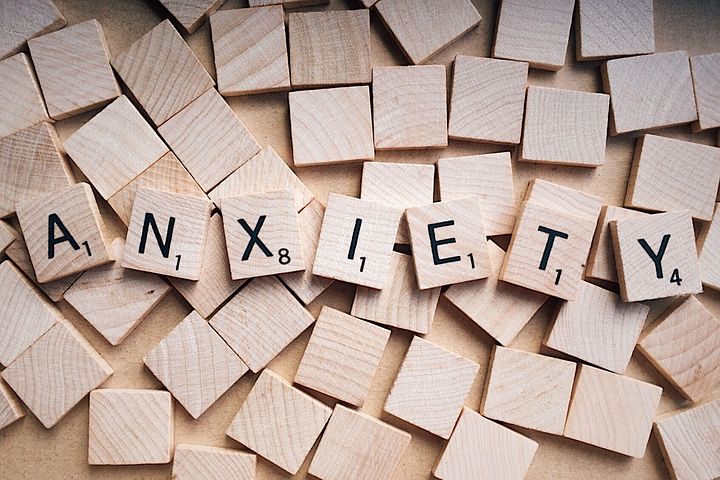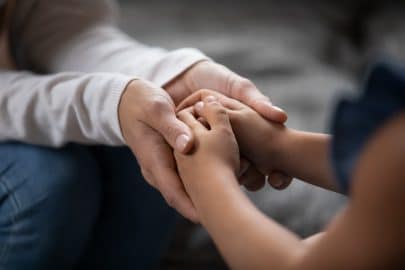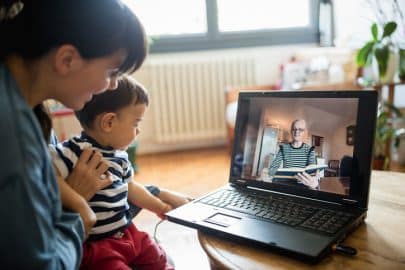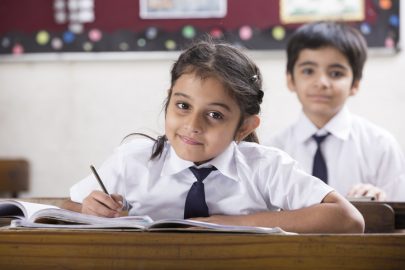Anxiety is an emotion which all of us will experience at various points in our life, including children. Functionally, a little anxiety is good as it helps us out in harmful and dangerous situations. Anxiety problems and disorders are still woefully under diagnosed and even health professionals may misjudge the severity of it. Most of us have the tendency to think that the kids will simply outgrow these fears which in turn becomes detrimental to their mental and emotional growth.
Pointers for parents to detect anxiety in their kids.
Somatic symptoms – If the child has been complaining of aches or pains in their body without any medical cause then the child could be suffering from anxiety. Generally the kids will complain of having stomach aches and headaches, so that they can avoid anxiety inducing situation.
Behavioural symptoms– Children may exhibit their anxiety through their behaviour. Refusal to go school, avoiding activities, excessively worrying about school, peers, disturbance in sleep and appetite, following certain rituals like constantly washing hands, organising, cleaning etc to relieve anxiety.
Expressing fears – If the child is able to articulate, parents can observe the thought pattern of their child. If fear and worry is an underlying theme in their thoughts then they very well might have anxiety.
NOTE– It is not necessary for you as a parent to wait, if you think the anxiety is impairing your child’s functioning and disrupting his/her routine consult an expert to understand the reason.
Causes of anxiety in children
While the exact causes of anxiety in children are not fully known, it seems to be a combination of –
1. Genetics– If there is a history of anxiety related problems in the family, the child is more prone to getting anxiety.
2. Learned behaviour– If one of the parents is anxious then the child may “learn” to be fearful and anxious as this is the behaviour he/she has observed at home.
3. Environmental– Abusive environment at home (neglect is also a form of abuse), bullying at school, and death of a loved one can cause distress and anxiety in children. These are the more common environmental factors.
4. Warm bubble trap– It’s normal for children to feel anxious about various things going on in their life. It’s also understandable that the parents’ natural instinct is to protect their child from whatever that is causing anxiety to their child. In doing so, parents forget that they are enabling their child’s fears and worries by protecting them instead of teaching them skills to deal with or manage those fears. Overtime, the anxiety can get worse and be detrimental to their mental health as they grow up.
Anxiety disorders in children
Anxiety can manifest itself in various ways but we shall look at the most common anxiety disorders in children.
1. Separation Anxiety Disorder – Separation anxiety is common amongst young toddlers (6months to 3 year olds) Young toddlers or babies feel start crying when the parents or attachment figures are not around them. This is normal. A child with SAD (separation anxiety disorder) will excessively worry and fear that something bad will happen to their attachment figure if they leave them. Symptoms could be clinging excessively, refusal to go to school, refusal to stay away from attachment figures, refusal to sleep alone, complains of body aches and excessive crying can be some of the symptoms. For SAD to be diagnosed these symptoms must persist for at least 4 weeks.
2. Generalized Anxiety Disorder (GAD) – A child suffering from GAD will experience worry about a lot of things like future events, social acceptance, and safety about their dear ones. Physical complaints may include frequent stomach aches, headaches, stomach disruption, muscular tension, restlessness and heart palpitations. These children can also be extremely self critical about themselves and their performances at school etc.
3. Social anxiety – This is more common in older children or adolescents. This is characterized by fear of embarrassment in social settings. This fear is out of proportion to the actual threat that is posed. Children with social anxiety may exhibit symptoms like heart palpitations, sweaty palms, feeling jittery, shaking etc. Excessive worry, two to three weeks prior to the events can be observed. The child might speak about feeling not good enough, failing terribly, doing something stupid in front of everyone, saying or doing something incorrectly and so on.
Treatment
CBT or Cognitive Behavioural therapy is one of the most effective forms of talk therapy for anxiety disorders in children and teens. Apart from this, depending on the severity of the disorder, they could also be prescribed some medications.
Pointers for parents
1. Make sure you go to a certified therapist. Take your child to all the appointments.
2. Remember, the goal is to help your child by giving him/her skills to cope with such situations later in life.
3. Do not be hesitant to give medications if they are so prescribed. They do not have negative long term effects.











How to handle such prolonged anxiety in kids due to COVID-19?
Anxiety has certainly emerged as a major psychological disorder among adults as well as children in lockdown. These tips will indeed be helpful to parents.
This article aptly fits the current situation. While our kids have proven to be real warriors by showing patience and co-operation, they are now getting a tad bit anxious not being able to go out, play and meet friends. The extended lockdown is likely to dampen their moods a little bit more. It’s very important for parents to keep a tab on their kids’ behaviour for any anxiety and soothe their fears/doubts. Parents must be positive instead of showing anxiety so that kids can fee secure.